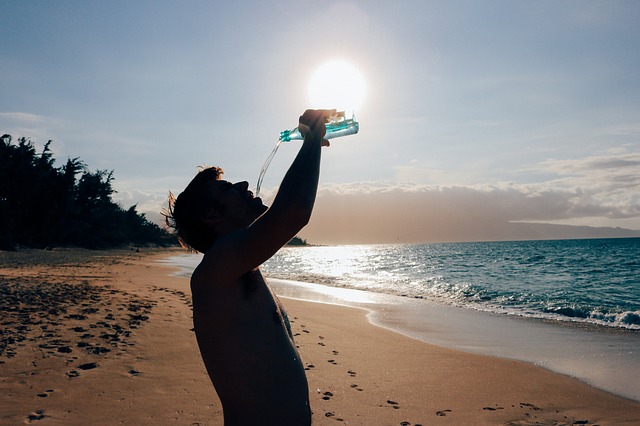Capetonians are warned to keep hydrated as temperatures reaching as high as the mid-forties are expected for the Western Cape interior, as well as the Cape metropole leading up to Thursday, January 16.
The Namakwa interior and central Northern Cape will also experience a heatwave during the same period.
Temperatures will be so high that a fire warning has been issued for both provinces, setting many residents on edge. Some of the Western Cape’s most devastating fires have been as a result of spontaneous ignition caused by extreme heat.

Pet owners are urged to ensure their pets have enough water and shade to prevent them suffering from heatstroke.
⚠️Advisory⚠️: #Heatwave conditions are expected over parts of the Northern and Western Cape provinces over the next few days (Namakwa interior and central Northern Cape, interior of the Western Cape and the Cape Metropole until Thursday). Stay hydrated. Keep safe. pic.twitter.com/WdQ2EdZTOk
— SA Weather Service (@SAWeatherServic) January 13, 2020
Here are tips to help you prepare for the coming heatwave:
Avoid strenuous activity
Slow down. When the body heats too quickly to cool itself safely, or when you lose too much fluid or salt through dehydration or sweating, your body temperature rises and heat-related illness may develop.
Heat disorders share one common feature: the individual has been in the heat too long or exercised too much for his or her age and physical condition.
Seek out cool
Children, seniors and anyone with health problems should stay in the coolest available place. This might not always be indoors, but a good tip is to find somewhere with air conditioning. You might consider going to a library, store or other location with air conditioning for part of the day.
Drink plenty of water
Your body needs water to keep cool. Drink plenty of fluids even if you don’t feel thirsty. People who have epilepsy or heart, kidney or liver disease, are on fluid-restrictive diets or have fluid retention should consult a doctor before increasing their consumption of fluids.
Do not drink alcoholic beverages and limit caffeinated beverages.
Avoid too much sun
Seek out the shade and avoid sunburn, as not only is it damaging to the skin, it significantly limits the skin’s ability to shed excess heat.
Dress sensibly
Wear lightweight, light-coloured clothing to reflect heat and sunlight.
Think before you drive
Studies have shown that the temperature inside a parked vehicle can rapidly rise to a dangerous level for children, pets and even adults.
For example, a dark dashboard or seat can easily reach temperatures in the range of 82°C to more than 93°C. Leaving the windows slightly open does not significantly decrease the heating rate. The effects can be more severe on children because their bodies warm at a faster rate than adults.
Picture: Pixabay

